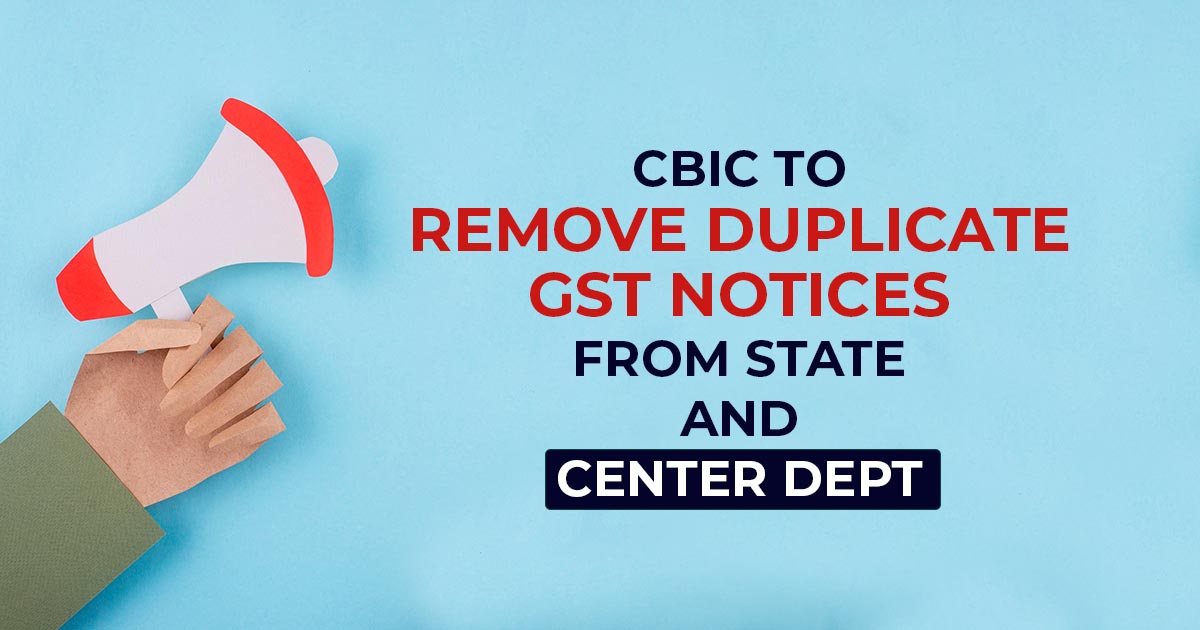
To develop an internal method desired to eliminate duplicate Goods and Services Tax ( GST ) notices sent to companies and individuals already under investigation by state goods and services tax authorities is been directed by the Central Board of Indirect Taxes ( CBIC ) to its field officers.
Some instances show that the taxpayers are getting the GST notices via both the Central and State GST departments, as per the reports. It has been contested before distinct high courts. Hence CBIC to diminish that is deciding to secure the strategy to regulate this redundancy.
The Calcutta High Court in Raj Metal Industries & Anr. V.UOI & Ors. persisted the issued summons and proceedings started thereunder against the taxpayer through the State GST Authorities as the proceedings were already due on the identical subject under the Central Goods and Services Tax Act, 2017 (the CGST Act). Held that the summons issued is, prima facie, in violation of Section 6(2)(b) of the West Bengal Goods and Services Tax Act, 2017 (“the WBGST Act”)
The Madras High Court, in the case of M/s. VGN Projects Estates Private Limited v. Assistant Commissioner ( State Taxes ) and others have directed the assessee to answer the Show Cause Notice (SCN) issued via the State Tax Authority. This order comes as parallel proceedings had been initiated via the State Tax Authorities on an identical problem already under consideration by the Central Tax Authority.
As per the court if the defects shown in the Show cause are similar then they must be ignored, for such defects no subsequent measure is to be opted against the assessee since they are already being addressed via the central tax authority.
As per Section 6(2)(b) of the CGST Act, “where a proper officer under the Central Goods and Services Tax Act has initiated any proceedings on a subject matter, no proceedings shall be initiated by the proper officer under this Act on the same subject matter.”
Similarly, the court has furnished the directions for the simultaneous proceedings performed by both the Central and State GST departments. However the state GST heads do not completely adopt technology, through effective digital record-keeping of investigations, unwanted notices can be prevented, the officials stated.









